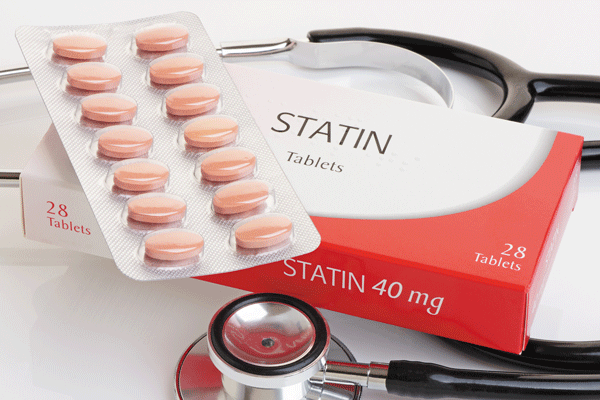
Driving with arthritis pain: Stay comfortable — and safe — behind the wheel

Daily cup of coffee may prevent afib recurrence

Gene-editing therapy lowers harmful blood fats in early study

What is EMDR therapy, and who can it help?

GLP-1 drugs versus bariatric surgery for treating obesity

Two dumbbells, three exercises, and 10 minutes

Easing the emotional burden of IBS

Modify your push-ups to meet your fitness level

What is long QT syndrome?

Stroke survivors may benefit from very low LDL levels
Staying Healthy Archive
Articles
How can I tell if I'm sleeping enough?
Ask the doctor
Q: I have always had difficulty sleeping. Since I have taken to heart the advice for good sleep habits, I think I'm sleeping better, but I'm not sure. I'm in bed about 8.5 hours, but am often restless and get up to go to the bathroom a couple of times during the night. Is there a way to compute how much sleep I'm actually getting?
A: Adequate sleep is an important part of health. While the exact amount needed to maximize health and wellness is not totally clear, many experts recommend around seven to nine hours per night. Adequate sleep is associated with memory, improved mood, better weight control, improved diabetes control, greater resistance to colds, and fewer accidents.
What's the purpose of the new mental health questionnaire?
Ask the doctors
Q: I went for my usual check-up, and in addition to taking my blood pressure, the medical assistant handed me a form to fill out with nine questions related to my mental health. I've never had this happen before. Is this new?
A: Yes, it is new for most people. The U.S. Preventive Services Task Force (USPSTF) has just released an important depression screening recommendation. The USPSTF recommends regular depression screening for all adults, which is a modification from advice originally given in 2009, in which screening was recommended only for clinics or doctors who had adequate support systems to provide mental health care for those who were identified with depression. Since that time, multiple studies have found that mental health care from primary care clinicians works very well, and probably just as well as specialist care from psychiatrists. That isn't to say we don't need care from psychiatrists, but rather that not everyone needs a psychiatrist, especially those with mild to moderate depression.
Why dietary supplements are suspect
Supplements aren't held to the same standards as FDA-approved drugs. Evidence indicates that few are effective, many are useless, and others may be harmful.
Image: Thinkstock
Dietary supplements—including herbs, vitamins, minerals, and other products—are a $37-billion industry in the United States, and 60% of women are taking them regularly. At the same time, mounting research is suggesting that supplements—even mainstays like calcium—may be harmful at high doses.
The use of supplements and other alternatives to standard treatments is centuries old, but Dr. David Eisenberg, adjunct associate professor at the Harvard T.H. Chan School of Public Health, was the first to document the widespread use of alternative therapies in the United States. In a 1993 article in The New England Journal of Medicine, Dr. Eisenberg and colleagues reported that more than a third of Americans were using unconventional therapies, largely for chronic conditions, and most were doing so without letting their clinicians know. That report covered acupuncture, spinal manipulation, massage, and yoga, but it also focused public attention on all unconventional treatments, including the growing use of herbal remedies and other dietary supplements. In 1998, the Office of Alternative Medicine in the National Institutes of Health (NIH) was revamped as the National Center for Complementary and Alternative Medicine and charged with funding rigorous studies into the safety and effectiveness of alternative physical treatments as well as popular dietary supplements and herbs.
Why you may need a statin
Although risk calculators disagree, at some point age becomes the deciding factor in the decision to take a cholesterol-lowering medication.
Image: Thinkstock
If you've been diligent about monitoring your risk factors for developing heart disease, you may have realized that online calculators can be helpful. If you have the results from your latest cholesterol test, these online calculators can compute your chance of having a heart attack or stroke in the next decade:
Framingham Risk Calculator http://cvdrisk.nhlbi.nih.gov
ACC/AHA Heart Risk Calculator www.cvriskcalculator.com
Reynolds Risk Score www.reynoldsriskscore.org
However, each may give you a slightly different number. And while the Framingham calculator might indicate that your risk is low and therefore you don't need a cholesterol-lowering statin drug, the ACC/AHA calculator could indicate that you should be taking a statin to reduce your risk.
How to work around a minor hearing loss
If you're missing a few words but not ready for a hearing aid, a few simple strategies and smartphone apps may help.
Image: iStock
Are you avoiding certain restaurants because they're too noisy? Do you catch yourself wondering what you just heard the radio announcer say? Are you wearing out the volume control on your remote? Chances are you have a bit of hearing loss.
It's easy to ignore a hearing loss because it can be subtle and gradual. And you may be in denial because you don't like the idea of wearing hearing aids. Yet struggling to hear can erode your quality of life.
Getting out of the chair boosts metabolism in postmenopausal women
There's mounting evidence that sitting for long periods can have health risks. However, little is known about how the effects of sitting can be countered by standing occasionally. A team of researchers from the United Kingdom and Australia designed a two-day study involving 22 overweight or obese postmenopausal women with high blood sugar who were at risk for diabetes. On the first day, the women were assigned to one of three groups. One group sat for 7.5 hours straight. The other two sat over a 7.5-hour period, but one group was told to stand in place for five minutes every half-hour, and the other was told to walk for five minutes every half-hour. The second day, all the groups sat for 7.5 hours straight.
On both days, the researchers tested each participant's blood levels of glucose, insulin, fatty acids, and triglycerides—all indicators of metabolism. They found that both walking and standing reduced glucose, insulin, and fatty acids—signs of a higher metabolic rate—in women who either stood or walked compared with those who sat the entire time. Moreover, in the two active groups, some of the beneficial effects persisted into the next day, when everyone sat for the entire session.
Correction: healthy prepared entrée
In the January Health Letter, we gave you suggestions for finding healthy frozen food entrees. Because of a typographical error, the text of the article incorrectly stated that you should look for 5 or fewer grams of fiber per serving. In contrast, the table (reproduced below) noted accurately that you should look for entrees with 5 or more grams of fiber per serving. We apologize for the error in the text.
What to look for in a healthy prepared entrée: | |
When the label says... | Look for... |
Calories | 600 or less |
Fiber | 5 grams or more |
Sodium | 500 milligrams or less |
Trans fat | 0 grams |
Saturated fat | 5 grams or less |
Sugar | 0 grams |
Should you use a retail health clinic?
They're convenient and affordable, but they don't replace a relationship with a primary care physician.
Walk into a drugstore, supermarket, or "big box" store these days, and you'll find more than prescriptions, food, and household goods. Many now feature health clinics. They're part of the big trend of making health care more convenient. "Twenty years ago you had to go to an emergency department if you got sick and needed immediate care. Now we have an explosion of options, such as retail health clinics," says Dr. Ateev Mehrotra, a researcher on the topic and an associate professor of health care policy at Harvard Medical School.
The clinics
Retail health clinics began showing up about 15 years ago. Today, there are about 2,000 clinics across the United States, mostly in large retail chain settings. A typical clinic is open from 7 a.m. to 7 p.m., seven days a week, and is staffed by a nurse practitioner or a physician assistant. Clinics offer all kinds of health services—everything from treating minor illness like a cold, pinkeye, or a urinary tract infection to providing physicals, health screenings, lab work, smoking cessation help, and vaccinations.

Driving with arthritis pain: Stay comfortable — and safe — behind the wheel

Daily cup of coffee may prevent afib recurrence

Gene-editing therapy lowers harmful blood fats in early study

What is EMDR therapy, and who can it help?

GLP-1 drugs versus bariatric surgery for treating obesity

Two dumbbells, three exercises, and 10 minutes

Easing the emotional burden of IBS

Modify your push-ups to meet your fitness level

What is long QT syndrome?

Stroke survivors may benefit from very low LDL levels
Free Healthbeat Signup
Get the latest in health news delivered to your inbox!
Sign Up









